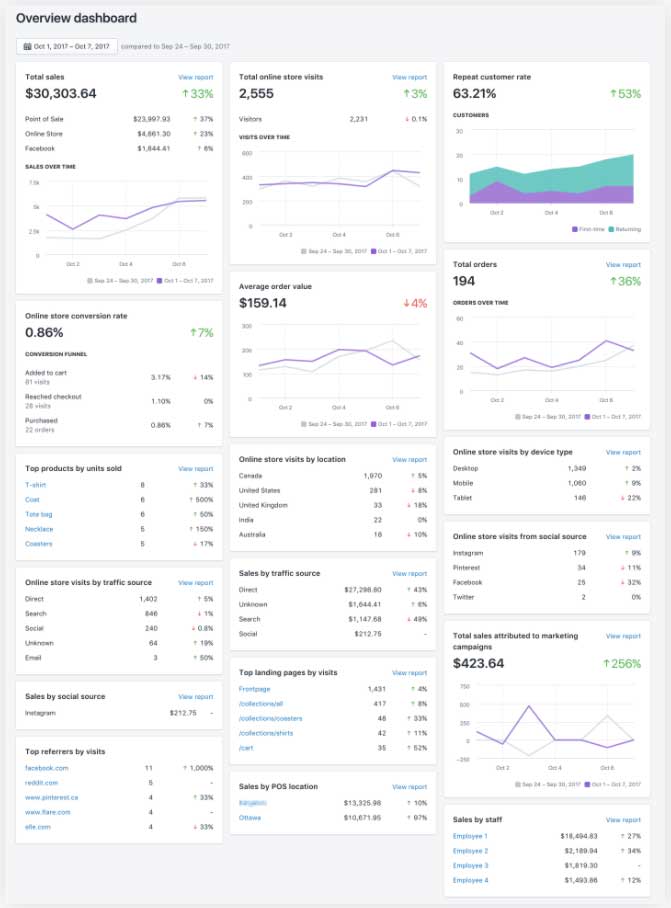Your Ecommerce store is your pride and joy, built from the ground up and providing a fantastic product or service.
I know that and you know that — but do your customers know that?
Maybe you’re not seeing the sales figures you expected.
Or perhaps your marketing campaigns aren’t getting enough traction?
Either way, you want to build your online store into a successful, recognized ecommerce brand.
How?
The answer is simple: influencer marketing.
Influencer marketing is almost as old as advertising itself, albeit in various differing guises.
But today, social media has turned it into a business in itself.
It’s no longer just slapping a famous face on your product.
With the ability to reach huge audiences across a variety of platforms, influencer marketing has become a core component of any smart marketing strategy.
Ecommerce brands need influencer marketing.
Here’s what you need to know:
Influencer marketing creates better content
Chances are, running your e-commerce store takes up a lot of your time.
Between juggling your store, your family, and even a full-time job, it can be hard to stay on top of it.
However, posting fresh, regular content to your site keeps your audience locked into your brand and enhances your SEO.
So how do you keep on track? Here’s where your influencer comes in.
Through guest posts, video blogs, or even social media takeovers, they can generate content in their own unique style, especially for your store.
Not only will this give you some breathing space to focus on other tasks, but it gives your brand that little extra boost.
A good example of this on a larger scale can be found in DJ Khaled’s campaigns.
A successful and renowned producer and DJ, he is known as the “King of Snapchat”.
He is hugely sought after for influencer campaigns, and regularly has Snapchat takeovers of brands from Stride Gum to the city of Las Vegas.
But you don’t need to pay A-list prices for A-list results.
Why not consider reaching out to a micro-influencer?
These are individuals who perhaps don’t have as many followers as a famous celebrity, but have garnered significant followings in specific niche areas.
For example:
If you sell fishing gear and accessories, get in touch with a fishing blogger for the occasional guest post and product review.
It’ll pay dividends, both for the influencer and for you.
Test out AI-driven social tools like Socialbakers to up your social media game, and keep exploring ways to stand out from the crowd whilst streamlining production times.
Increase your brand awareness
With the rise of user-friendly Ecommerce store builders, starting your own online store has never been easier. From setup to sales, almost all the hard work is done for you.
While this is great for making the world of business more accessible for your average Joe, it also means more competition for you.
From bespoke jewelry to high-end sportswear, people all over the world are scrambling to get a piece of that e-commerce pie.
This means you need to step up your marketing game to make your brand stand out amongst the rest.
A great example of this is the food storage company Dixie.
Not heard of them?
They teamed up with Markerly to create an influencer marketing campaign by linking up with 36 prominent bloggers to show the various benefits of their new Quicktakes food containers.
Influencers wrote about the great features of the product, resulting in Dixie’s brand awareness shooting up.
Reaching a total of 77 million people on Facebook, Twitter, Pinterest and more, Dixie became a recognized household brand. With influencer marketing, this can become a vision for your brand too.
Build trust and authenticity
People do what other people do — fact.
How many times have you seen someone wearing a cool new jacket, only to see ten other people wearing the same thing a few weeks later?
People trust other people’s choices, a phenomenon known as social proof. And while this works on the individual level, it also works at a business level.
Influencers are the social proof masters.
They have amassed a huge body of dedicated followers, who eagerly devour everything they post, tweet, or say.
And what do the followers do when the person they follow recommends something? If done right, they’ll go out and buy it.
This is because consumers trust the person they follow.
A good influencer has a history of posting informed, engaging, and reliable content. This gives them credibility and authenticity and builds up a level of trust between them and their followers.
So when they extol the virtues of your product, it lends your brand all those qualities as well.
Tracking and quantifying data
The above are just some of the benefits that influencer marketing can bring to your brand.
But you’re going to want to measure the actual effect that this would have for you.
Talking about it is all well and good, but you want to see some cold hard data — and you can…
There’s a variety of ways you can do this.
For example, you might want to increase your brand’s visibility — which would be measured in a different way to, say, actual sales. In this case, you might want to focus on reach, engagement, and shares.
You will want to monitor brand mentions using a tool like Mention.com and gauge overall brand sentiment.
Can influencer marketing directly correlate with e-commerce sales?
Certainly.
In order to track (and push for) sales, you could create a unique voucher code or affiliate link for that influencer.
And you don’t need to be a tech wizard to track or create this kind of data either — creating unique codes and assigning them to channels is easy these days.
Most eCommerce sites include robust analytics functions (such as the Shopify store dashboard pictured below) to monitor your orders, sales, and referral channels.
Focus on the ‘big picture’ data visualizations to get a quick overview (like the one below).
Be sure to delve deeper into month-on-month figures to pinpoint a sales uplift:
If you want to measure audience engagement, you can run tests on click-throughs to your site, likes, comments, shares, and so on from social media.
This gives you a feel for how the influencer content is being received, and how it is impacting your eCommerce brand
Use this data to determine which certain campaigns are performing better, and try to get to the bottom of why that is.
Is your influencer partnership a strong one?
Does your influencer content have a strong enough value proposition?
Do you need to up your discounts?
Influencer marketing is fast becoming the go-to for marketers everywhere.
From big brands to little brands, the value of people-led campaigns is being utilized to great effect.
We’ve told you what you need to know about influencer marketing for your e-commerce business, so all you need to know now is — which influencer is right for you?
Want to learn more? Join our FREE Facebook Group: Influencer Marketing for Badasses
Guest post by Victoria Greene.






Pingback: Influencer Marketing: A Tactical Approach for E-commerce - // 551 Media LLC
Always love reading your content Tom.
Thanks Dan!